Head and deputy head
Head – dr. Marko Kovačić, Assoc. Prof.

Dr. Kovačić has received several scientific and professional awards for his work. He serves on the editorial boards of multiple scientific journals, and evaluates projects for numerous European institutions on topics related to youth and education. He actively contributes to organizations and initiatives for and with youth, aimed at improving the position of young people and the quality of education in Croatia. Notably, he was one of the initiators and organizers of the 2016 and 2017 Croatia Can Do Better protests in support of comprehensive curricular reform.
Marko’s educational background includes: Postdoctoral training at the University of Graz, Ph.D. in Public Policy from the University of Ljubljana, M.A. in Political Science from the Central European University in Budapest, M.A. in Public Policy from the Faculty of Political Science in Zagreb, where he also earned a B.A. in Political Science. He has been a visiting researcher at Universitat Pompeu Fabra in Barcelona and received additional training at the University of Minnesota.
Areas of Expertise: youth policy, sociology of youth, youth work, youth participation, evidence-based policy-making
Courses Taught: Pedagogy of Youth Work, Education Policy, Students and the Community, Political sociology, Research Design, Academic Writing
Current Projects: Supporting Youth Work at the Municipal Level; Professional Formation of Youth Workers: Researching, Learning, and Communicating Youth Work in a Diverse World and with Diverse Groups; Goals of Croatian Public Policies; Political Competence of Youth on the Threshold of Adulthood; Analysis of the Design of Local Educational Policies; Re-Gen: Youth and Urban Regeneration: Let’s Take Back Public Spaces!s!
Deputy head – dr. Valentina Otmačić / PhD
Dr. Valentina Otmačić is a scholar, educator and practitioner in the fields of peace, conflict transformation and human rights.
She received her PhD in Peace Studies from the School of Social and International Studies of the University of Bradford (UK). She holds master’s degrees in Conflict Resolution from the Open University of Barcelona (Spain) and in the Culture of Peace, Conflict, Education and Human Rights from the University of Granada (Spain).
Her main research interests are in the areas of resistance to violence, constructive conflict transformation and memory studies. Her book “Resisting Inter-Ethnic Violence: Community Approaches to Conflict Transformation in Croatia and Bosnia-Herzegovina” was published in 2024 by Routledge.
As a practitioner, she worked with several UN Agencies and international NGOs supporting peacebuilding and human rights efforts in Croatia, Bosnia-Herzegovina, Tanzania, Burundi, DR Congo, Lebanon and Colombia. She is an expert in strategic advocacy and trainer in conflict transformation. Her resource book “Conflict as a challenge: enhancing children’s capacities of constructive conflict transformation” was published in Lebanon by Arab Resource Center for Popular Arts.
Permanent associates
dr. Mario Žuliček / PhD
Dr. Mario Žuliček received his PhD in the field of information and communication sciences, on the topic of influence of communication messages on individuals at the moment of decision-making. In his previous scientific work, he dealt with citizen involvement in decision-making processes and influence of the communication aspect on the aforementioned.
He has more than 10 years of work experience in civil society organizations, most of which in the national association of local self-government units, where he had the role of the coordinator of international programmes and international organizations’ activities in Croatia. He also had the role of the coordinator of the evaluation process of local youth policies in cities, named City for Youth.
He is active in international organizations, where he was elected to managing bodies – the ALDA Governing Board member, the president of the Regional Youth Network, and the Presidium member of the Assembly of European Regions. He successfully completed the Council of Europe’s school and obtained the title of the expert in participatory democracy.
He completed his doctoral studies at the University North, at the same university where he successfully completed master studies in public relations.
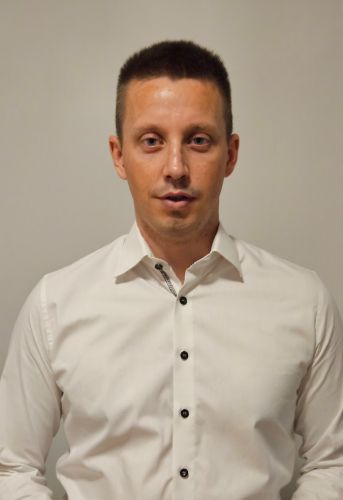
Marija Špoljarić, mag. oec
Marija Špoljarić, mag. oec., works in administrative, organizational and marketing fields. She received her master’s degree in the field of gender perspective of energy poverty at the Faculty of Economics of the University of Rijeka, where she also completed her undergraduate studies.
During her studies, she was extremely active as a student representative at the local and national level, and her role as the national coordinator of the project to procure menstrual supplies at universities in Croatia stands out. She was also a student representative at the European level through the YUFE (Young Universities for the Future of Europe) University Alliance.
After her studies, she was employed at the University of Rijeka Foundation and participated in Horizon Europe and Interreg programs as an administrative assistant.
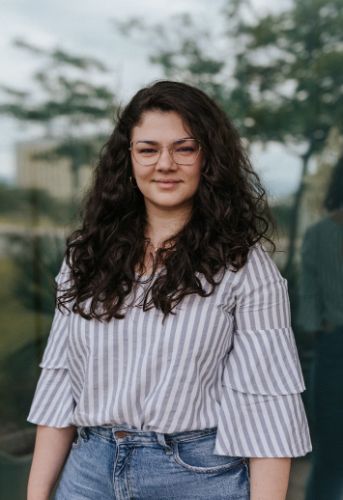
dr. Tena Prelec, Assist. Prof.
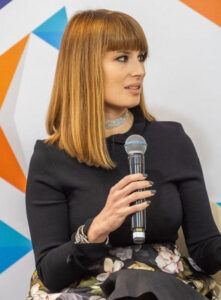
Dr. Tena Prelec is an Assistant Professor in Politics and IR at the University of Rijeka (UniRi). Her main research focus rests on transnational linkages in corruption studies, while also examining the intersection of illicit finance and geopolitical competition. She has held positions at the University of Oxford and the London School of Economics and earned her PhD from the University of Sussex’s Centre for the Study of Corruption. Her first co-authored monograph – Indulging Kleptocracy: British Service Providers, Postcommunist Elites, and the Enabling of Corruption – was published by OUP in 2025. She is currently working on her second book titled: Technomanagers: The Pre-Capitalism Capitalists – Yugoslav Elites at the Edge of Worlds.
She is Work Package leader of the Horizon Europe project GEO-POWER-EU, which looks at EU enlargement in a deteriorating geopolitical context, and Principal Investigator of the GI-ACE project Lawyers: Gatekeepers, Enablers or Technicians?. A member of the Balkans in Europe Policy Advisory Group, she is a noted expert on Southeastern Europe, and has published widely in academic and policy outlets. She is also an Honorary Research Fellow at the University of Exeter and a former Fellow of the Global Future Council on Integrity and Anti-Corruption, World Economic Forum.
Tena is the recipient of numerous awards, including the Marshall Memorial Fellowship (the leadership development programme of the German Marshall Fund of the United States), the ESRC Celebrating Impact Prize (runner up), and the Exeter ‘Fair, Just and Inclusive Society Award’ (winner). Her OUP book has been selected as one of the ‘Books of the Year’ by the magazine Foreign Affairs in December 2024. Her research has often informed policy in the anti-corruption, higher education and EU enlargement space. She has worked as a consultant for numerous international organisations and geopolitical analysis firms, including as Senior Analyst for Oxford Analytica.
As the coordinator of several research grants at UniRi, as well as of the new study programme ‘Political Transformations’, Tena hopes to contribute to the empowerment of Political Science and IR in her home country of Croatia.
Areas of expertise:
EU enlargement, rule of law, corruption, kleptocracy, geopolitical competition, academic freedom, media freedom, state capture, transnational authoritarianism
Languages:
Italian, Croatian, English and Russian (fluent), French, German and Spanish (basic).
External associates
dr. Nebojša Zelič, Assist. Prof.
Dr. Nebojša Zelič works as an assistant professor at the Department of Philosophy at the Faculty of Philosophy in Rijeka. He teaches a number of courses related to Political Philosophy and Ethics. He is the founder and former head of the Center for Peace and Conflict Studies at the University of Rijeka. As part of the Center, he launched a civic education project for secondary schools, which, in cooperation with partner organizations (Institute for Social Research in Zagreb, 1st Gymnasium in Rijeka), became the subject Schools and Communities (ŠIZ), which is implemented in Primorje-Gorski Kotar County, Krapina-Zagorje County, and the City of Zagreb. Also, as part of the Center, he started the Mrkopalj Peace School after a number of years, which organizes a series of workshops with high school students from Croatia and Serbia.
He was the head of the scientific project “Well-being, belonging and social justice.” In his scientific work, he dealt with many issues of public interest, such as abortion, immigration, church-state relations, and social justice.
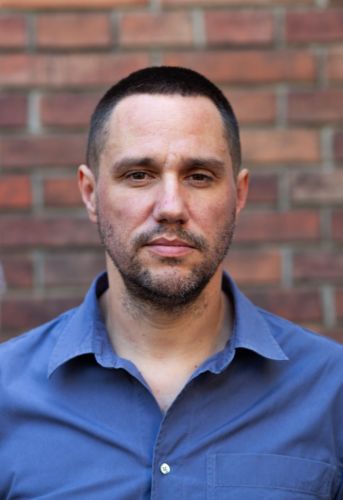
Helena de Karina, prof.
Helena de Karina (born 1971) is a Croatian language and literature teacher at Prva riječka hrvatska gimnazija. In addition to regular teaching, she is also involved in informal education for young people in the field of culture and is an external associate of the Center for Peace and Conflict Studies at the University of Rijeka.
She is the author and co-author of numerous projects aimed at encouraging reading and developing reading culture, among which the literary program Rijeka riječi, Brusilica for high school students as part of Vrisak – Rijeka Book and Author Fair, Green Reading List (International Federation of Library Associations and Institutions), and the civic education curriculum for high schools School and Community stand out.
She is a methodology expert on the University of Rijeka project Reading List for the 21st Century and co-author of two books: Albert Camus – Reading List for the 21st Century and Franz Kafka – Reading List for the 21st Century. She also participated in developing occupational standards for Croatian studies.
As a representative of the education sector, she is active in the intersectoral platform of the Center for the Culture of Dialogue. Additionally, she participates in international cooperation projects such as the Horizon project The Cartography of the Political Novel in Europe at the Faculty of Humanities and Social Sciences in Zagreb, initiatives and global education programs of the North-South Centre of the Council of Europe, and has lectured at professional meetings, conferences, and panels.
She is a member of the Expert Working Group for developing state exam tasks at the National Center for External Evaluation of Education for the 2024/2025 school year.
For her teaching, mentoring, and professional work, she has received numerous awards, including the Nada Dimić Award for promoting social freedoms and multiple awards from the Ministry of Science and Education for the best educators. She has mentored students who have won awards at national and international competitions, including Lidrano festivals and digital storytelling competitions within the Erasmus+ BRIGHTS program.
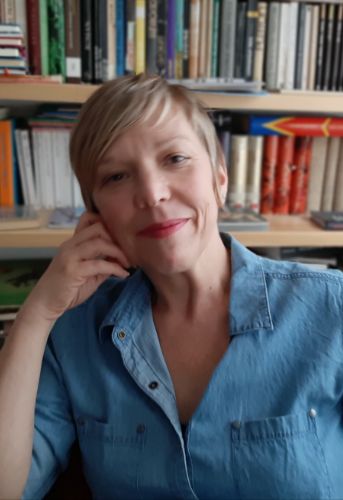
dr. Marjeta Šinko / Assist. Prof.
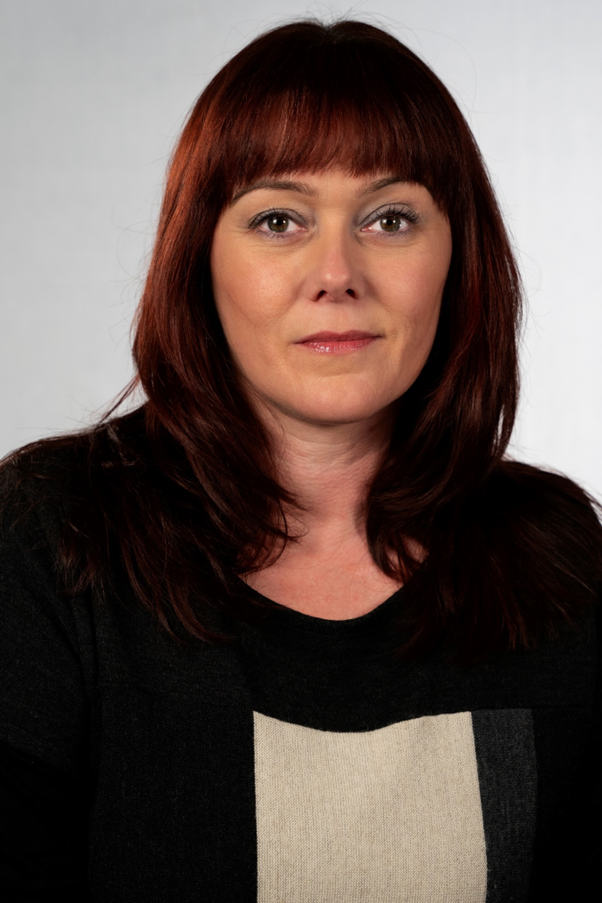
Marjeta Šinko is an Assistant Professor at the University of Zagreb, Faculty of Political Science, Department for Comparative Politics. She studied political science in Croatia and Germany and was a visiting fellow at the University of Ljubljana (Slovenia) and University of Alberta (Canada). Her PhD was on the topic of comparative gender equality policies.
She works mainly in gender and politics, comparative politics, and public policy fields. She is an investigator at a project on Croatian policy goals and teaches courses “Gender and Politics” (both in Croatian and English) and “Comparative Political Systems” at the Faculty of Political Science. She is the head of the Department for Comparative Politics and a member of various organizations (feminist NGO, trade union, professional political science association). She was recently (re)elected as a member of the IPSA RC19 Gender Politics and Policy Board.
Her published work, include articles and edited books such as “Women in Parliament – A Global Perspective” [In Croatian], “Political Parties and Recruitment of Women into Parliaments: Implementation of Quotas in the EU” [In Croatian], “EU Gender Equality Policy: Policy Evolution and Feminist Evaluation” [In Croatian], “Gender Mainstreaming in Croatia: Pervasive or Marginal Goal of National Strategies?” [In Croatian] and Women and Politics: Feminist Political Science [In Croatian]. Her more recently published book chapter is “Only Stand-ins? Women’s Parliamentary Representation and Quota Implementation in Croatia Since 2011” (2023) in Party Politics and the Implementation of Gender Quotas: Resisting Institutions (ed. Lang, Meier & Sauer, Palgrave Macmillan).
dr. Ana Petek, Prof.
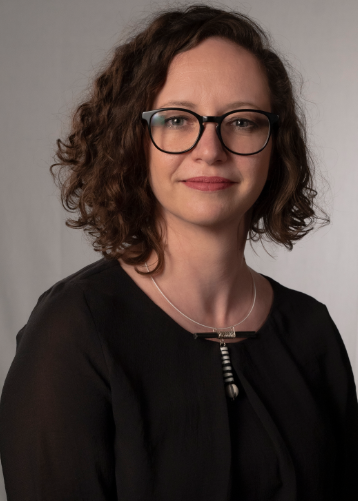
Ana Petek is a Full Professor at the Faculty of Political Science, University of Zagreb, in the Department of Public Policy and Political Economy, where she has been employed since 2006. She holds a BA degree in journalism and political science and has earned a master’s and a doctoral degree in political science.
Her research interests primarily lie within the field of public policy, with a specific focus on policy theory, policy design, comparative public policy, Croatian public policy, and qualitative research methods. She has specialized in disability policy and mental health policy. She has published over 40 scientific and professional papers in international and domestic journals and edited volumes, with her most notable contributions addressing policy goals. She has participated in several research projects, most notably as the principal investigator of the University of Zagreb project How the Government Governs: Goals of Croatian Public Policies and as a researcher on the Croatian Science Foundation (HRZZ) project Well-being, Belonging, and Social Justice at the Faculty of Humanities and Social Sciences in Rijeka.
In her teaching career, she has collaborated on and taught various undergraduate and graduate courses in political science and journalism, particularly in public policy and social science methodology. She designed and introduced a new course on Qualitative Research Methods. As part of her academic development, she attended 10 summer schools and doctoral seminars in Italy, the USA, Denmark, Finland, Slovenia, and Croatia, focusing primarily on methodological issues with renowned international researchers. She has presented her work at over 20 international conferences (USA, Poland, Latvia, Spain, France, Chile, Belgium, Canada, Germany, Croatia) and has delivered invited lectures abroad in Finland and Belgrade. She has reviewed over 20 scientific papers for international and domestic journals and has served on the editorial boards of several scientific journals, including Croatian and Comparative Public Administration, Macro Management & Public Policy, The Annals of Croatian Political Science Association, Political Perspective, and Politička misao.
Ana Petek is a member of the Croatian Political Science Association, the International Political Science Association (IPSA), the International Public Policy Association (IPPA), and the Croatian Institute of Public Administration. She has held several leadership positions at the university, including Head of the Department of Public Policy and Coordinator of Methodology Courses at the Faculty of Political Science. She is also an active union representative.
dr. Marija Spevan, Assist. Prof.
dr. Gorana Mišić / PhD
dr. Marta Zorko, Prof.
dr. Danijel Baturina, Assoc. Prof.
dr. Vesna Kovač, Prof.
dr. Silvije Šegulja, Assist. Prof.
dr. Saša Zelenika, Prof.
dr. Željka Tonković, Assoc. Prof.
dr. Vanja Jurišić, Assoc. Prof.
dr. Sanja Barić, Prof.
dr. Darko Vinketa / PhD

Darko Vinketa is employed at the Department of Constitutional Law at the Faculty of Law in Rijeka. He received his PhD in political theory from Johns Hopkins University on the topic of the relationship between conceptualization of production and imitation in Western philosophy from Plato to postmodernism. In his scientific work, he deals with theoretical issues such as the role of critical theory in pluralistic democracies and the nature of political power in the philosophies of Rousseau, Nietzsche and Hegel, as well as contemporary political topics such as identity politics, universal basic income, artificial intelligence and automation of work in general, the status of money in post-industrial societies, etc. In his free time, he comments on current socio-political developments through canonical philosophical prisms such as contemporary turbofolk and Nietzsche’s metaphysics, anti-gender discourse and Plato’s theory of forms, Croatian nationalist music and Hegel’s critique of picture thinking.
dr. Matija Miloš, Assist. Prof.

Matija Miloš is an Assistant Professor at the Department of Constitutional Law at the Faculty of Law in Rijeka. He received his doctorate in 2019 at the Faculty of Law in Zagreb. His work primarily focuses on constitutional theory. His dissertation dealt with citizens’ initiatives as a means of constitutionally channeling conflicts over representation. In addition to direct democracy and the concept of representation, his academic research also addresses religious freedoms and the secular state, freedom of thought and expression, as well as the right to privacy. Alongside constitutional law, he teaches political participation law and rhetoric at the Faculty of Law. He is a member of the current term of the Human Rights Council of the Ombudswoman, where he serves as one of two representatives of the academic community. He is also a member of the Croatian Political Science Association, the International Society of Public Law – Central and Eastern Europe Chapter, and the Croatian Association for Constitutional Law. He is a columnist for Faktograf and Novosti.
dr. Gordana Šimunković / PhD
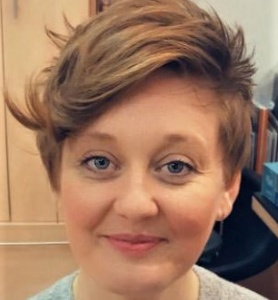
Dr. Gordana Šimunković, PhD, works at the Department of Social and Humanistic Sciences in Medicine and at the Department of Social Medicine and Epidemiology at the Faculty of Medicine, University of Rijeka.
She earned her doctorate at the Faculty of Law, University of Zagreb, within the Doctoral Program in Social Policy. She completed a Postgraduate Specialist Study in Public Health at the Faculty of Medicine, University of Zagreb, and a degree in Social Pedagogy at the Faculty of Education and Rehabilitation Sciences, University of Zagreb.
She also completed Peace Studies and additional training in the fields of community development, public policy analysis and design, and strategic planning.
She is an associate of the Centre for Health Systems, Policy and Diplomacy at the Andrija Štampar School of Public Health, Faculty of Medicine, University of Zagreb, and an external associate of the Department of Social Policy at the Faculty of Law, University of Zagreb. She is a member of the National Committee for the Development of Volunteering and a member of the Management Board of the Croatian Association of Social Pedagogues. She has also been a member of the Management Board of the organization Status M and the Volunteer Centre Zagreb.
She has been actively involved in the work of several associations, including Krijesnica – an association providing support to children and families facing malignant diseases, the Volunteer Centre Zagreb, the Blue Phone helpline, the Centre for Inclusive Support IDEM, and the Association for Social Policy Initiatives, among others.
Her research work has encompassed various areas of health policy as well as other social policy fields (e.g., analysis of the mixed model of healthcare; the contribution of volunteering and donations to the development of the mixed healthcare model; possibilities for developing pediatric palliative care in Croatia; implementation of the social investment concept in Croatian health policy; the position of children’s and youth mental health; EU peer review processes in the context of changes in Croatian social policy; etc.). Additionally, her research interests include children’s participation in the healthcare system, prevention of violent behavior, and related topics.
In various roles, she has contributed to the development of strategic planning documents of national importance and for local and regional self-government units in the areas of volunteering, palliative care, early intervention, children’s rights, local social policy, and children at risk of poverty and social exclusion, among others.